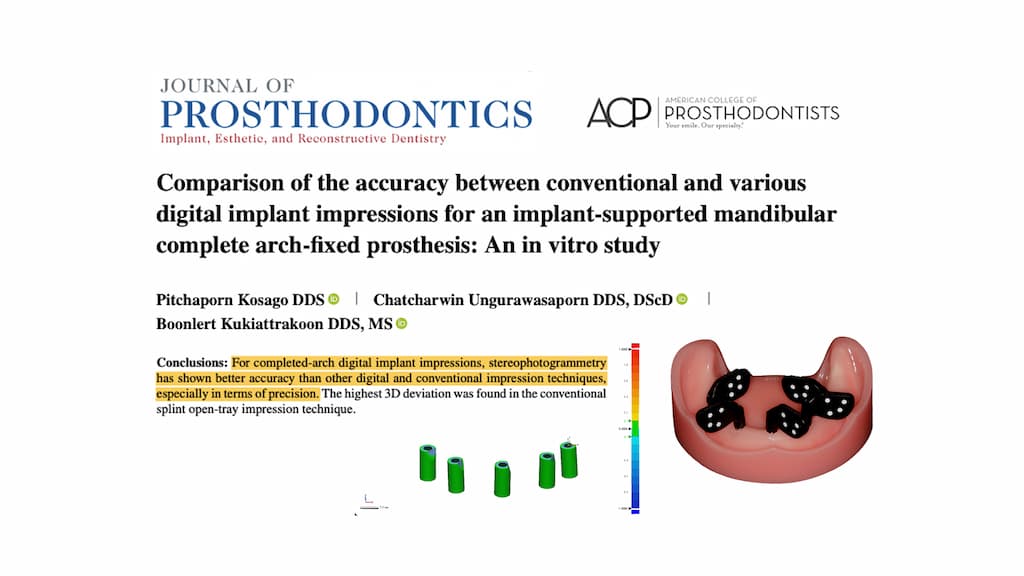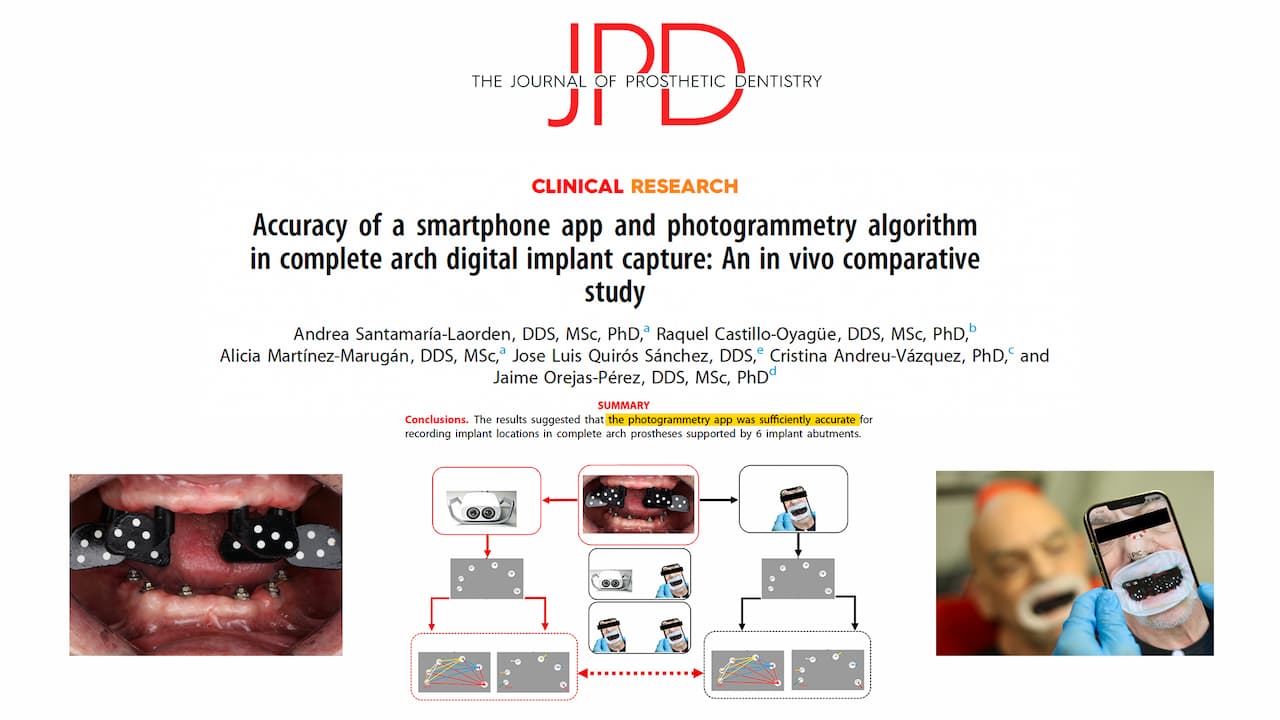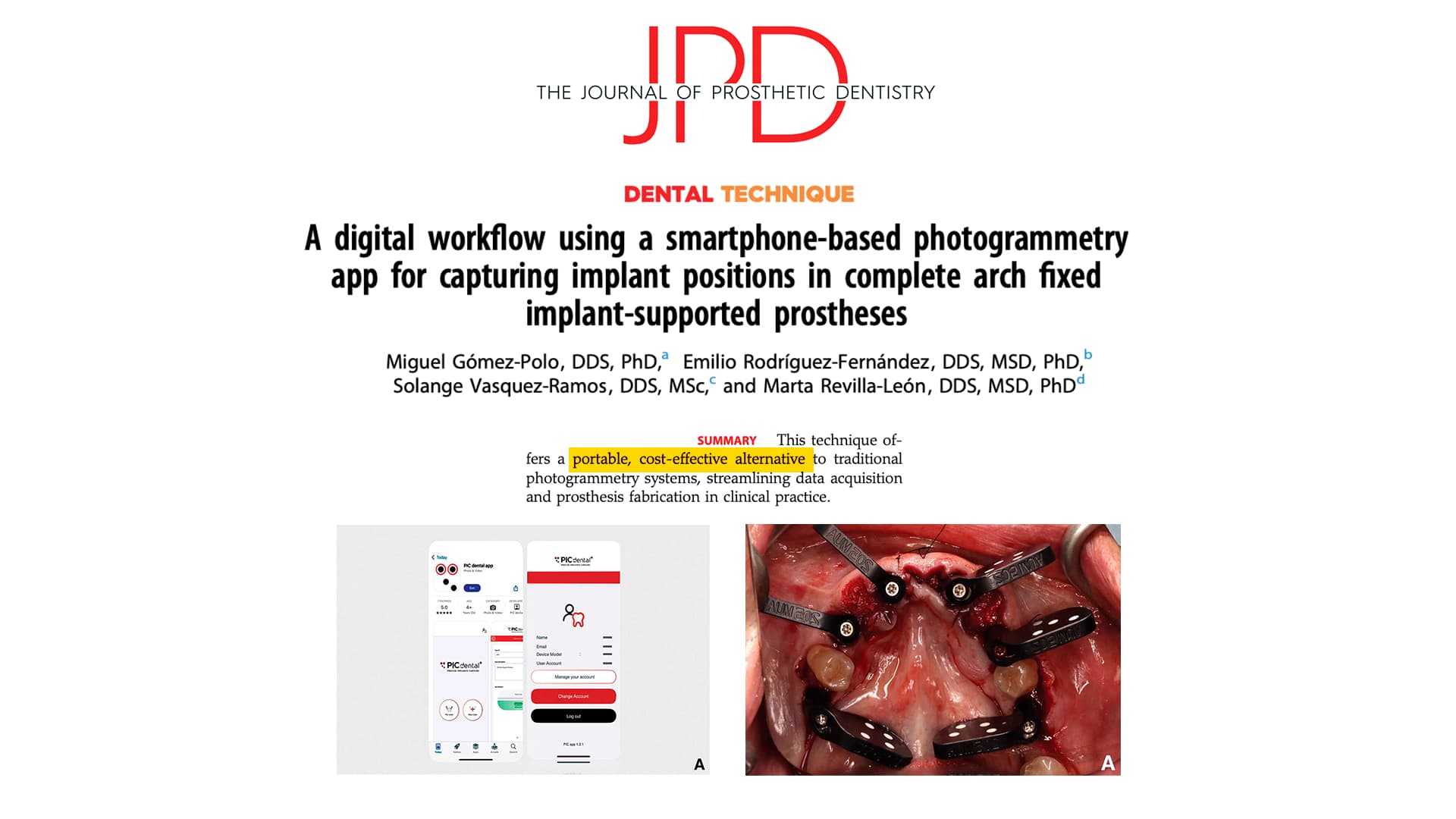A scientific study published in the Journal of Prosthodontics (from the American College of Prosthodontists) has provided new validation of the performance of PIC system Legacy! The in vitro study, conducted by Dr. Kosago, Dr. Ungurawasaporn, and Dr. Kukiattrakoon, compares the accuracy of PIC system Legacy with three different intraoral scanners as well as a conventional impression technique.
While precision is a common term in general communication, it has a very specific meaning in scientific research, where together with trueness it’s considered as a quality of accuracy. Trueness refers to how close a measured value is to the true or reference value. Precision, on the other hand, refers to how close repeated measurements of the same value are to each other, that is, the repeatability of a measurement.
The results of this study are consistent with previous scientific research, and show PIC system Legacy providing the highest accuracy, with both the best trueness (48.74 ± 1.80 μm) and precision (5.46 ± 1.10 μm) values in this full arch comparison, well within the range of a good passive fit.
%20-%20Marzo/2023-03%20-%20%20Kosago%20et%20al%20scientific%20article/jopr13604-fig-0002-m.jpg) The study's in vitro design enhances the performance of the other methods used in the comparison, further underscoring the significance of these results for the PIC system. In clinical conditions, intraoral scanning and conventional impressions made with the purpose of capturing implant positions with an actual patient may have their accuracy compromised by factors such as the operator’s skill and scanning strategy, the number and positions of the implants, the presence of saliva and blood, soft tissue mobility, ambient light and temperature and many others.
The study's in vitro design enhances the performance of the other methods used in the comparison, further underscoring the significance of these results for the PIC system. In clinical conditions, intraoral scanning and conventional impressions made with the purpose of capturing implant positions with an actual patient may have their accuracy compromised by factors such as the operator’s skill and scanning strategy, the number and positions of the implants, the presence of saliva and blood, soft tissue mobility, ambient light and temperature and many others.
The PIC system’s measurement of interrelated implant positions and angulations is not affected by any of these factors, as demonstrated in previous in vivo studies with patients (Orejas-Perez et al, 2022).
While intraoral scanners do not provide the same level of accuracy as the PIC system for measurements of implant positions and angulations in a full arch, they still play a critical role in the PIC pro workflow. PIC dental’s Unite and Conquer approach relies on intraoral scanning for obtaining soft tissue data that is then combined with the implants information contained in a PIC file. This combination provides clinicians with a virtual master model that would not be possible with either technology alone.
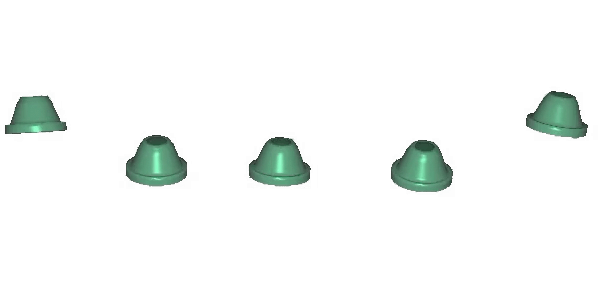
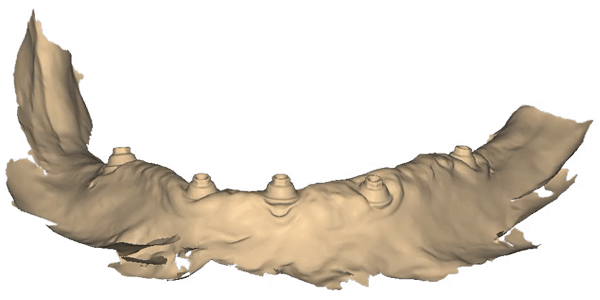
This research contributes to the extensive collection of scientific publications that, year after year, continue to validate the guaranteed passive fit delivered by PIC system in full arch implant restorations and prove its role as the most precise implants oral scanner in the world.
-1.jpg) It is worth noting that this study was conducted using a PIC system Legacy unit, the original generation of PIC system first released in 2009. Since then, a new generation of the PIC system was produced in 2022, with a new set of form factors and a new version of the PIC camera with Micron Vision camera modules that increase the system’s accuracy by up to 30% compared to the previous version. Our anticipation is high for the scientific community's future exploration to validate the performance of the newest PIC system.
It is worth noting that this study was conducted using a PIC system Legacy unit, the original generation of PIC system first released in 2009. Since then, a new generation of the PIC system was produced in 2022, with a new set of form factors and a new version of the PIC camera with Micron Vision camera modules that increase the system’s accuracy by up to 30% compared to the previous version. Our anticipation is high for the scientific community's future exploration to validate the performance of the newest PIC system.
SOURCES
-
Kosago P, Ungurawasaporn C, Kukiattrakoon B. Comparison of the accuracy between conventional and various digital implant impressions for an implant-supported mandibular complete arch-fixed prosthesis: An in vitro study. J Prosthodont. 2022;1–9. https://doi.org/10.1111/jopr.13604
-
Orejas-Perez, J.; Gimenez- Gonzalez, B.; Ortiz-Collado, I.; Thuissard, I.J.; Santamaria-Laorden, A. (2022). In Vivo Complete-Arch Implant Digital Impressions: Comparison of the Precision of Three Optical Impression Systems. Int. J. Environ. Res. Public Health 2022, 19, 4300. https://doi.org/10.3390/ijerph19074300
-
Tohme, H., Lawand, G., Chmielewska, M., & Makhzoume, J. (2021). Comparison between stereophotogrammetric, digital, and conventional impression techniques in implant-supported fixed complete arch prostheses: An in vitro study. The Journal of Prosthetic Dentistry. https://doi.org/10.1016/j.prosdent.2021.05.006
